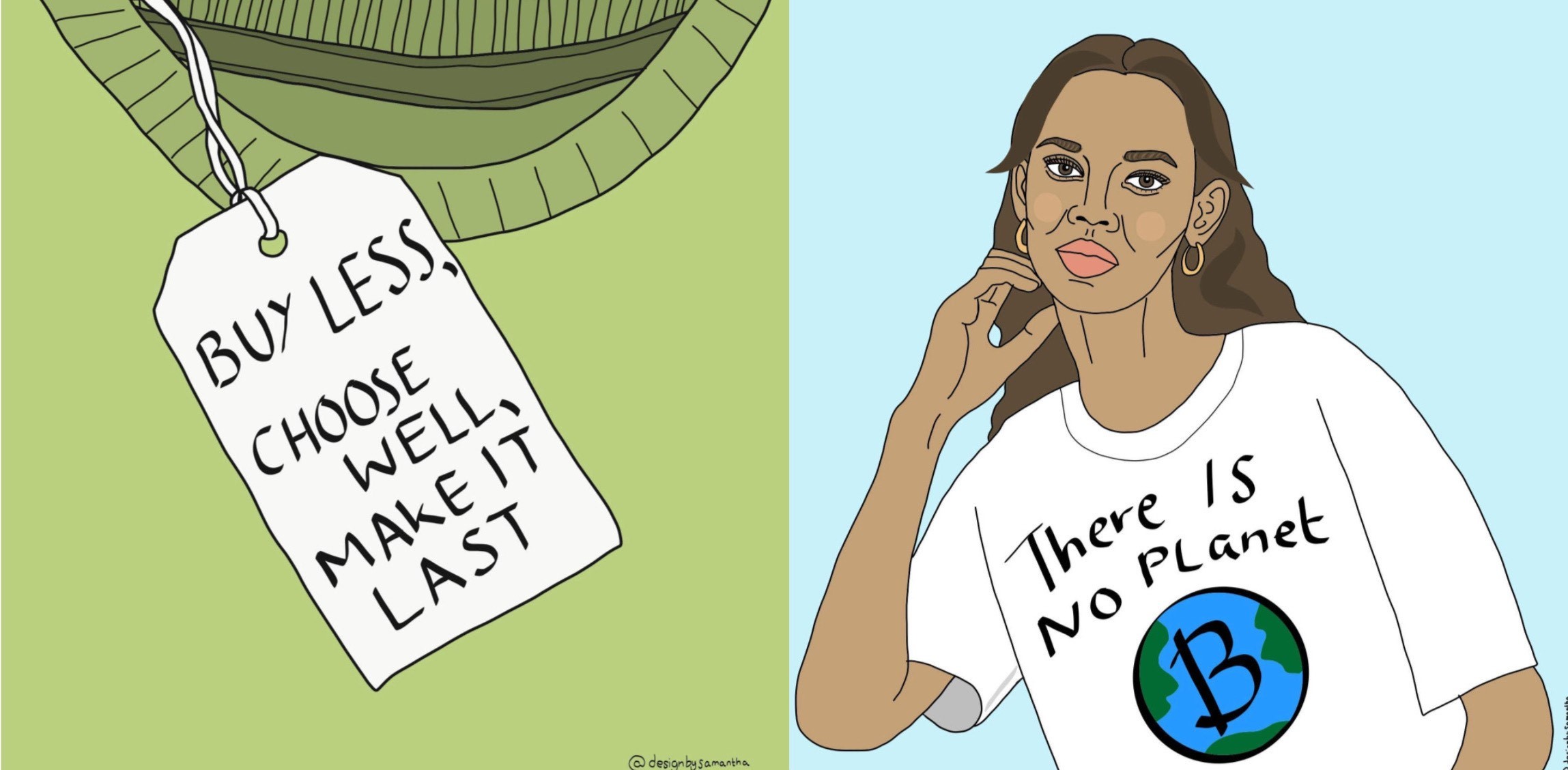Happy Fibers!
INNOVATIVE DESIGN
Our brand is a sustainable, ethical company that manufactures clothing pieces that do not produce plastic fibers. We want it to be an ethical version of brands like Shein, H & M, and Forever 21. While there are fantastic brands that are sustainable, they are typically very expensive and do not appeal to teens and young adults who don’t have the money to spend on clothes. Fast fashion clothing brands are popular because of their cheap and trendy assortment of clothes. Seeing a cheap price tag is always a plus, and considering how inexpensive the products are, it seems justified to keep purchasing more and more clothes. This leads to overconsumption and waste that is threatening our planet. Our company, Happy Fibers, eliminates the waste by using sustainable materials such as cotton, wool, linen, and hemp. Our goal is to inform consumers about sustainable clothing and the negative impact of fast fashion clothing. Our clothing items are just as cheap as fast fashion brands, and reduce the harm on our ecosystem.
UPGRADED CRITERIA
The criteria that we think our brand is portraying is attention. We picked attention because our brand is raising awareness about unethical clothing brands. Our goal is to make people more mindful about how their actions affect the planet. Making people aware of how fast fashion negatively impacts the health of our planet will hopefully be eye opening and allow people to realize what is wrong with microfibers and the damages that it causes in our environment. Once people are aware about other clothing brands and the harms of some of them, it will help our community a lot.
SUPPORTIVE CONTEXT
Plastic microfibers are small, thread-like fibers that shed from synthetic clothing. These fibers can take thousands of years to break down, causing pollution. Each time you wash synthetic clothes in a washing machine, millions of plastic fibers are produced and then released into the water system which then ends up in the ocean. They contain toxic chemicals that may carry disease. This becomes an economic issue when small aquatic organisms consume these fibers, and then make its way up the food chain. Seafood is an important food source for humans, and we could potentially be ingesting microfibers. Living in Maine, our economy relies heavily on seafood; and microplastics are threatening the sales of fish.
WEIGH COSTS
Our goal for Happy Fibers is to sell affordable clothing that is accessible to everyone. We want to encourage people to purchase clothes that reduce the amount of pollution and toxins that are released into the environment every day. We hope that Happy Fiber takes the place of other clothing brands that are unethical and terrible for the planet, like Shein. Our goal is to have many locations across the United States, and online stores so everyone has access to our brand. We want people all over the world to have access to eco-friendly clothing, and to educate themselves about how our actions negatively impact our planet. Purchasing environmentally friendly clothes, washing your clothes less frequently, and not supporting fast fashion brands are all steps we can take to lessen pollution. If every person takes these steps we can reduce the amount of waste we produce, and help protect our planet!
Bridget Adams and Josie Ford

You must be logged in to post a comment.